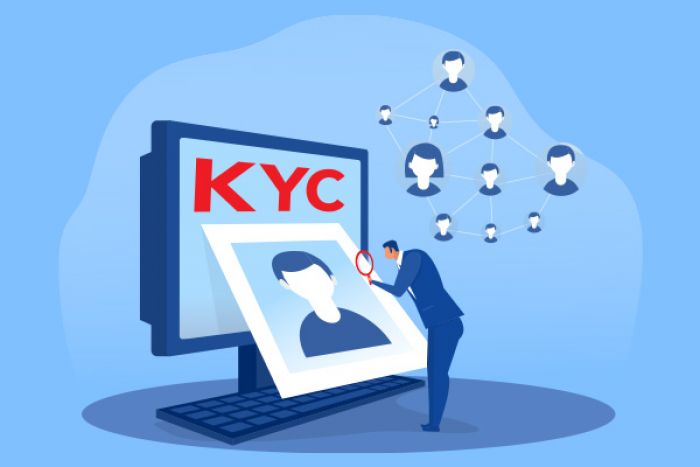Know Your Customer (KYC) policies are no longer discretionary in the increasingly controlled financial sector; they are absolutely necessary. Implementing a strong KYC system is essential whether you operate a conventional financial institution, a cryptocurrency platform, or a fintech company to guarantee compliance, preserve consumer confidence, and maybe most significantly, prevent large penalties and legal consequences.
But what precisely is KYC, and how might it shield your company from regulatory traps? Let's examine more closely.

KYC (Know Your Customer) is the procedure companies use to confirm their customers' identification. The aim is to make sure consumers are who they say they are and to evaluate any possible hazards of illicit intentions, such fraud, sponsorship of terrorism, or money laundering.
Usually included in KYC are:
Regulatory agencies have set rigorous rules for companies to obey as worldwide campaigns against financial crime get more fervent. Ignoring KYC rules could have grave repercussions such:
Being linked to financial crimes or regulatory infractions can cause long-term brand damage and loss of consumer trust.
The most clear advantage is monetary. Strong KYC standards greatly lower the possibility of penalties, hence protecting your company from unnecessary costs and legal complications.
Increase Consumer Confidence
Companies that take compliance seriously help their clients to trust them more. A clear KYC procedure demonstrates that your business prioritizes honesty and security.
Stop Financial Crimes and Fraud
KYC Solutions processes assist identify and stop fraudulent activity, hence protecting your business and your clients from illegal actions.
Simplify Operations
By ensuring uniform compliance, minimizing human error, and reducing onboarding periods, automated KYC systems can help to streamline your company.
Keep Ahead of Regulatory Changes
In the fast-evolving legal scene of today, companies with flexible KYC systems can more readily fit to shifting rules.
The following actions will help to guarantee your KYC procedure is efficient:
Purchase trustworthy identity verification tools supporting biometric checks, facial recognition, and document verification.
More than simply a compliance checkbox, KYC is a protective barrier guarding your company from financial crime, regulatory fines, and harm to reputation. Proactive KYC implementation is a wise investment given regulatory authorities all over the world tightening their hold on anti-money laundering (AML) policies.
Don't wait for a legal problem to remind you of its relevance. Include KYC as essential component of your operations and orientate your company for long-term trust, security, and success.
Be the first to post comment!